
Reviewed and Updated: Jul 11, 2024
Many of us take fish oil supplements daily to get the health benefits of omega-3. It supports brain, heart, and eye function while also fighting against inflammation in your body.
While many healthcare professionals recommend taking fish oil, you might not know what dosage is right for you. We’ll cover the benefits and dosages of omega-3 fatty acids for different groups.
What Are Fish Oil Supplements?
Fish oil supplements provide Omega-3 fatty acids which your body needs but can't produce on its own. So you need to look for Omega-3 from dietary sources like fatty fish.
There are two main omega-3s found in fish oil that impacts brain function and development:
- Eicosapentaenoic acid (EPA)
- Docosahexaenoic acid (DHA)
Unless your diet includes regular consumption of oily fish, it can be a challenge to get enough of DHA and EPA—most food sources of omega-3 acids contain alpha-linolenic acid (ALA), which doesn’t have the same benefits as DHA and EPA.
If you're looking for a fish oil supplement, consider Omega-3 Salmon King. It has nearly twice the Omega-3 content of the leading competitor.
What Are the Benefits of Taking Fish Oil?

Although omega-3s are found naturally in fish, some who don't get enough fish in their diets, might turn to fish oil supplements. The omega-3 fatty acids found in fish oil come with a range of benefits for your health. The most significant include:
- Reducing blood pressure*
- Promoting healthy skin*
- Improving bone health*
- Improve brain and mental health*
- Fighting inflammation*
The anti-inflammatory benefits can help reduce tenderness and joint pain that’s normally associated with arthritis. They also work to keep your arteries’ lining clear and smooth to allow more oxygen-rich blood to get into your working muscles.
[Related: Joint and Bone Strengthening Superfoods]
Omega-3’s Relationship to Brain and Mental Health
The brain contains polyunsaturated fatty acids, including omega-3s, which are essential for normal brain function. In fact, researchers suggest that individuals suffering from mental health conditions contain decreased amounts of omega-3 levels in their blood, thus increasing their Omega-3 levels may aid in alleviating or preventing certain mental health conditions such as depression and anxiety.
Omega-3’s Relationship to Heart Health
One study shows that fish oil can reduce raised levels of triglycerides in your blood—a major risk factor for heart disease. Fish oil can also help increase levels of good (HDL) cholesterol. Also, two other studies (1, 2) found that combining 3.4 grams of EPA and DHA resulted in a 25-50% reduction in triglycerides after one to two months.
Another study that involved 11,000 people taking 850-mg of combined DHA and EPA daily for three and a half years saw a 25% lower risk of heart attacks and a 45% lower risk of sudden death in those taking the supplement.
Also, the American Heart Association recommends that people suffering from coronary heart disease take a combined dose of 1,000 mg of DHA and EPA daily. They also recommend that people with high triglycerides take a daily dose of 2,000-4,000 mg.
Recommended Dosages for Fish Oil Supplements
It’s important to understand how much DHA and EPA are in the fish oil supplements you choose and which dosage is best for you.
[Related: Omega-3 Deficiency Symptoms: Ensure You’re Getting Enough]
Healthy Individuals

The recommended dietary intake (RDI) for healthy men and women is 1,600 mg and 1,100 mg daily, respectively. Most people get their omega-3s from foods like soybean oil, flax seeds, and walnuts, but those contain ALA rather than the beneficial DHA and EPA fatty acids.
Most people, unless they consume around two portions of oily fish each week, are lacking in DHA and EPA, and that’s where fish oil supplements can help.
Typically, healthy adults can take up to 3,000mg of fish oil each day safely.
Pregnant women
Both DHA and EPA are crucial for fetal development. More specifically, DHA accumulates in the brain in the last trimester of pregnancy. However, most pregnant women don’t get the RDI for the two essential fatty acids.
During pregnancy, supplementing with fish oil can benefit children during childhood and infancy. Benefits can include increased problem-solving skills, a reduced risk of food allergies, and a lower risk of asthma.
The World Health Organization recommends that pregnant women take 300 mg of combined DHA and EPA daily, and 200 mg of that should be from DHA.
However, watch out for cod liver oil—it contains large amounts of vitamin A. And exceeding this amount can impair fetal development.
Infants and Kids

For infants up to one year old, 500 mg of omega-3 daily is a safe dose, and this dose can gradually increase to the adult RDI by age 14.
However, the recommended dosage of EPA and DHA will vary based on the child’s age.
For example, a 4-year old will typically require a 100 mg combined dose of EPA and DHA, while an 8-year old will typically need double that dosage.
Children’s fish liver oils also provide vitamins A, D, and sometimes E, which helps keep the fish oil stable and prolongs its shelf life.
Vitamin E also strengthens the immune system and helps keep healthy skin and eyes.
When purchasing fish oil supplements for children or infants, it’s important to look for ones specific to their stage of life—this ensures that it contains the necessary amount of nutrients.
The Upper Limit of Omega-3 Supplements
The FDA states that EPA and DHA omega-3 supplements are safe as long as your daily dose doesn’t exceed 3,000 mg (unless your healthcare professional recommends a higher dose, of course). The organization also states that 250-500 mg of EPA and DHA from fish oil is enough for the majority of healthy adults.
The upper limit can vary depending on your specific needs, and keep in mind that children, infants, and pregnant women also require different doses, as mentioned above.
How Long Does Fish Oil Take to Work?
Omega-3 levels build up rapidly in your body once you start taking fish oil supplements. However, it can take anywhere from six weeks to six months to notice significant changes in pain, mood, or other symptoms—it varies for each person.
Medical Considerations When Taking Fish Oil Supplements
Fish oil can potentially interact with some medications, most notably with anticoagulants. For people taking these medications, fish oil could increase clotting times and as a result increase one's risk of bleeding.
Combining fish oil with medications designed to prevent blood clotting can potentially cause problems. Weighing benefits vs risks, however, many healthcare professionals will simply monitor you closely in these cases rather than taking you off the fish oil supplements altogether.
Choosing the Right Fish Oil Supplement
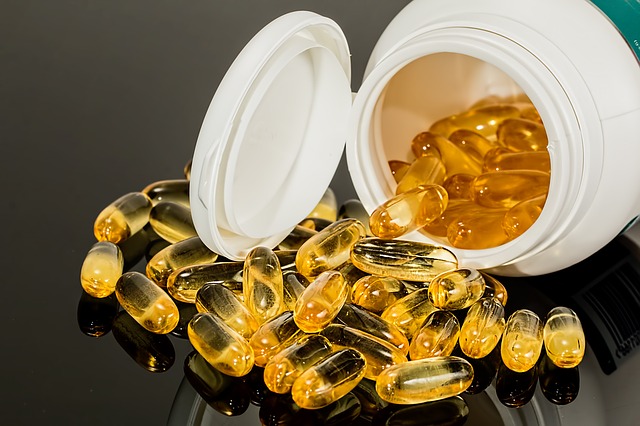
All fish oil supplements aren’t created equal. It’s crucial to choose supplements that are responsibly created, all-natural, and produced in an FDA-registered cGMP facility.
Additionally, potency can vary widely between brands. Omega-3 Salmon King, our own potent Omega-3 Fish Oil Supplement contains 2000mg of EPA and DHA Omega-3 per serving.
Is it time to add fish oil to your routine? Learn how to choose the best supplements, and stop by our shop at Best in Nature today!
This article is provided for informational purposes only and is not intended to be used as medical advice. If you have immediate concerns about your health and digestion, please seek the help of your physician.
*These statements have not been evaluated by the Food and Drug Administration. This product is not intended to diagnose, treat, cure or prevent disease.
[Related: Gift Guide: Best in Nature]




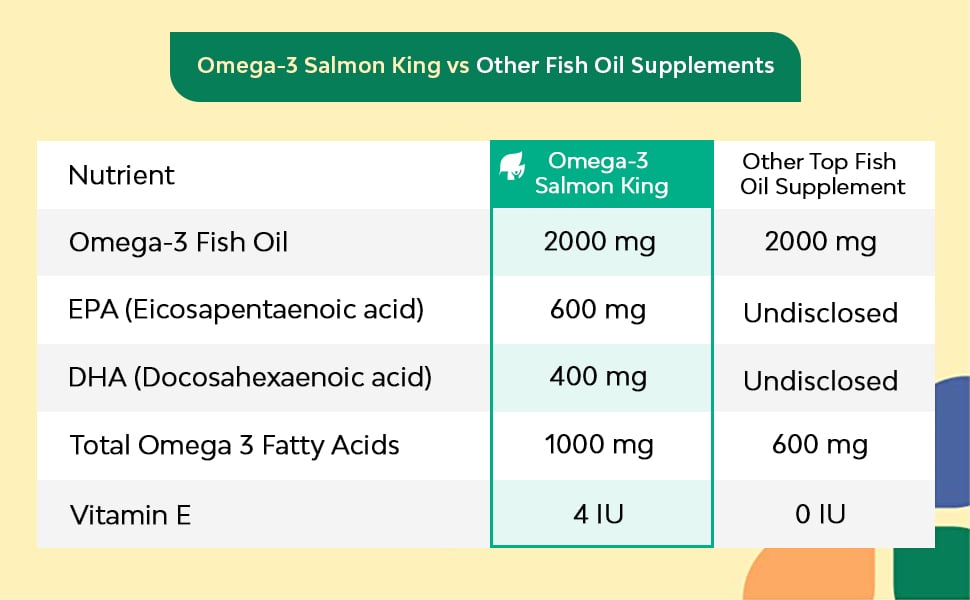


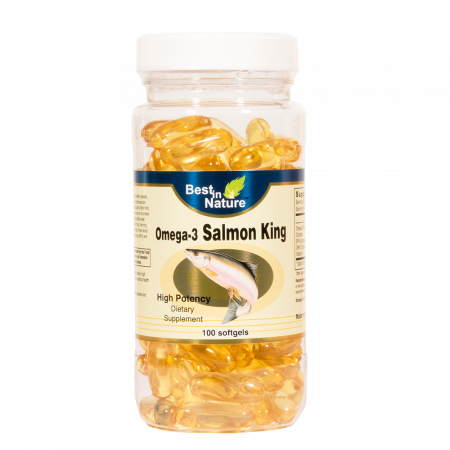
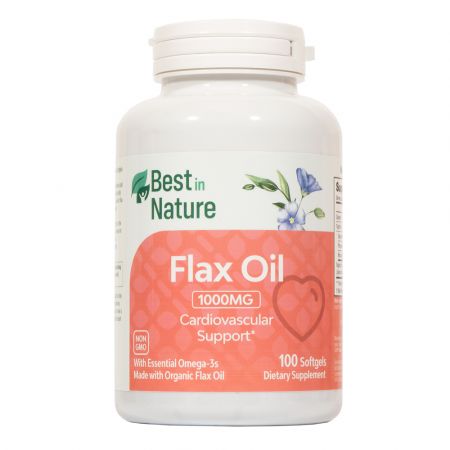
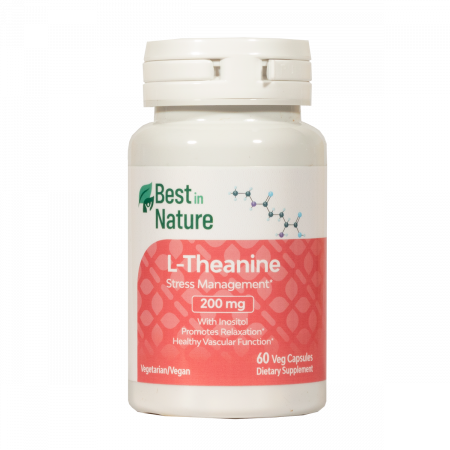
Validate your login
Sign In
Create New Account